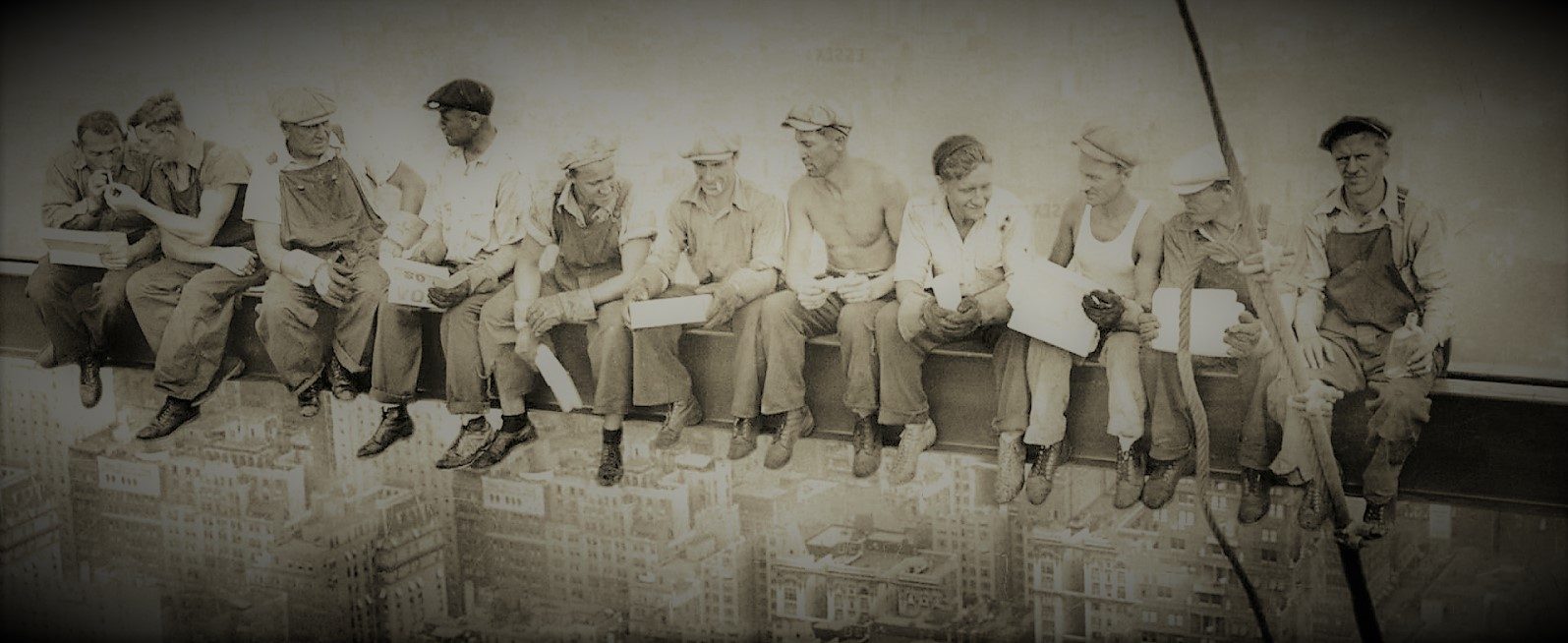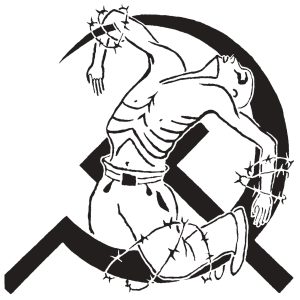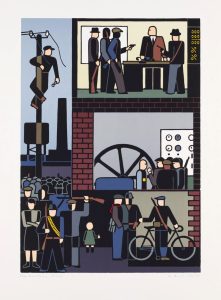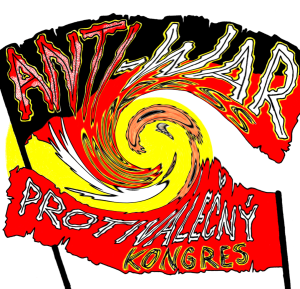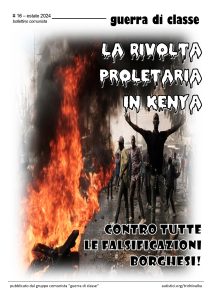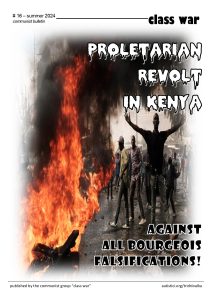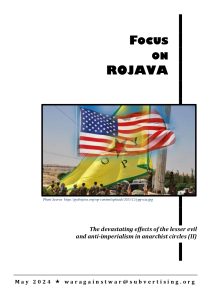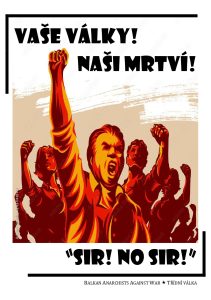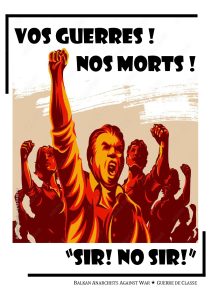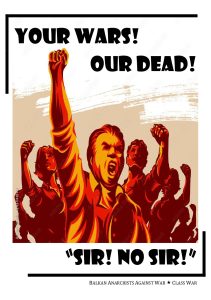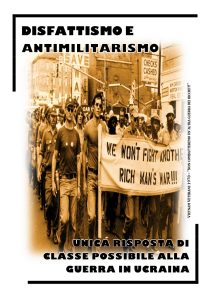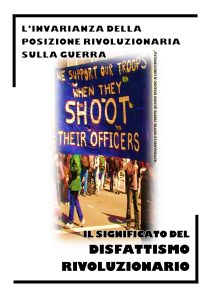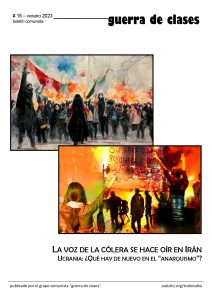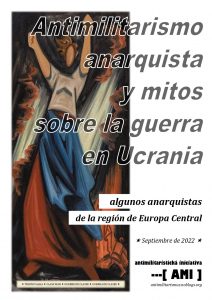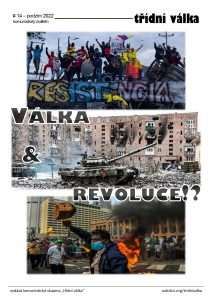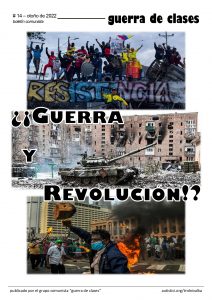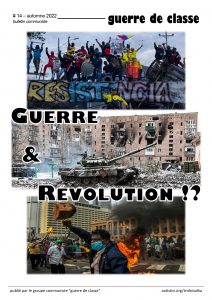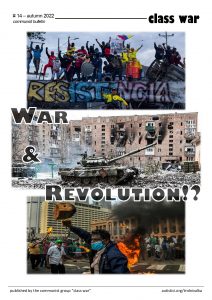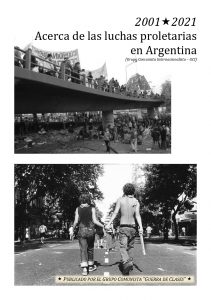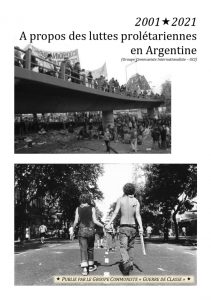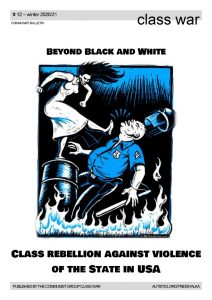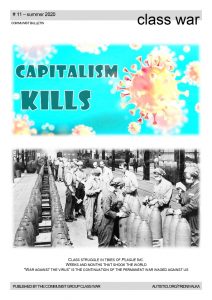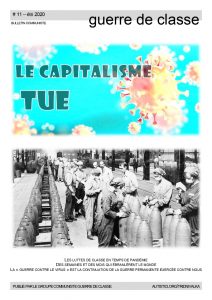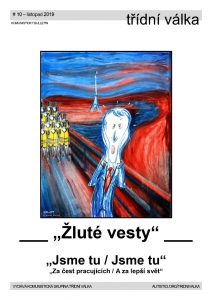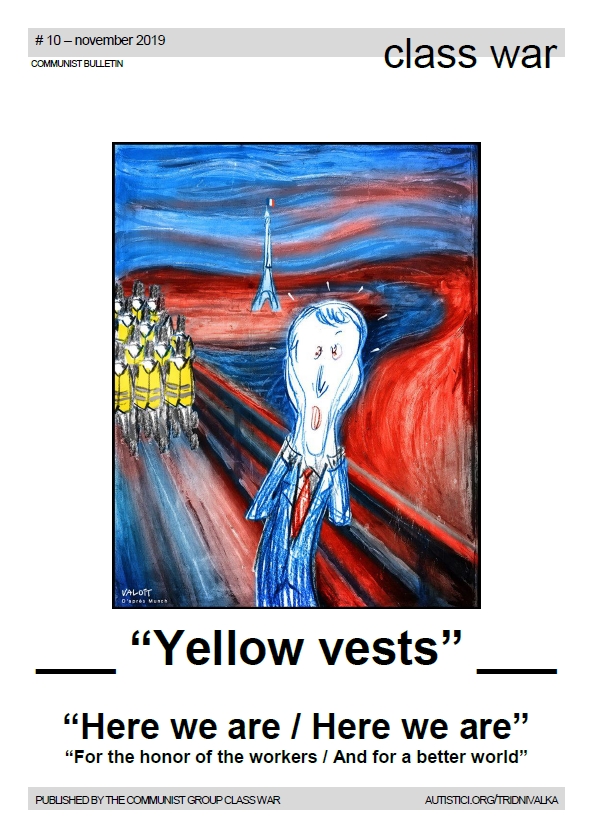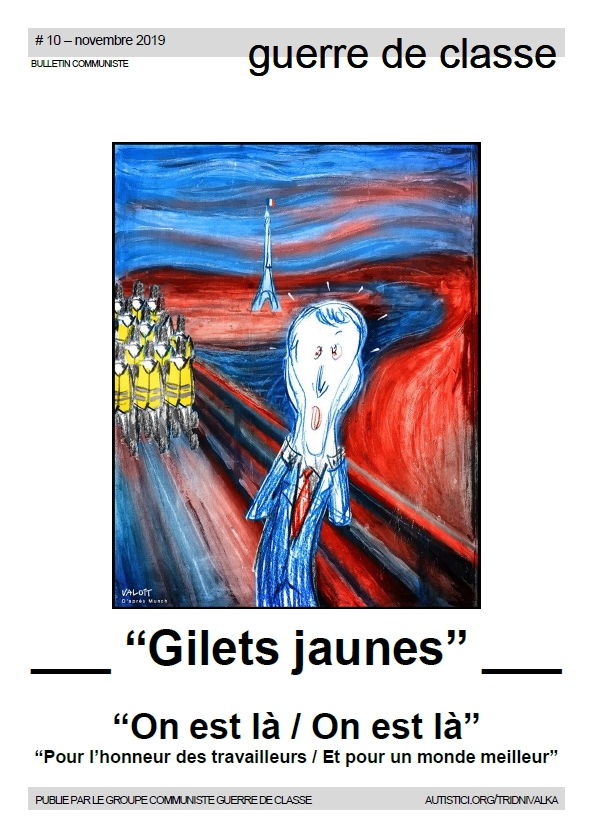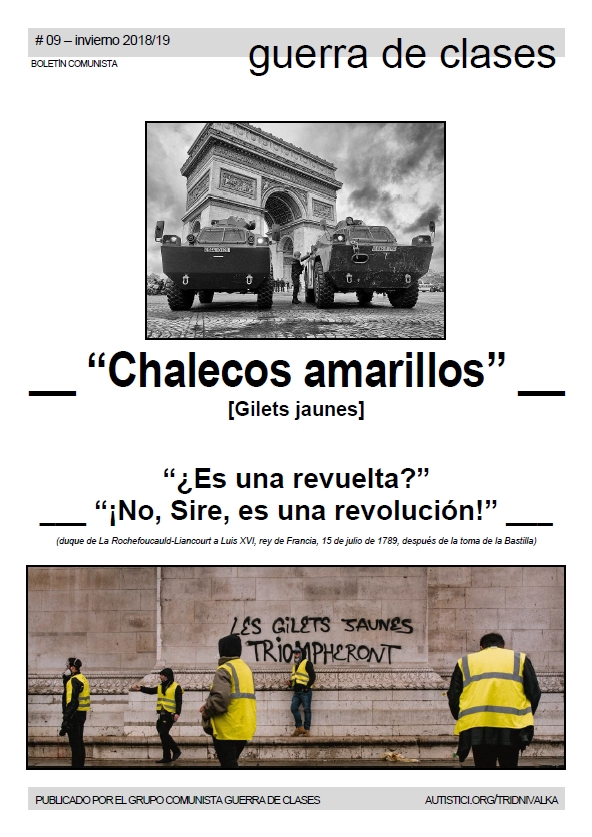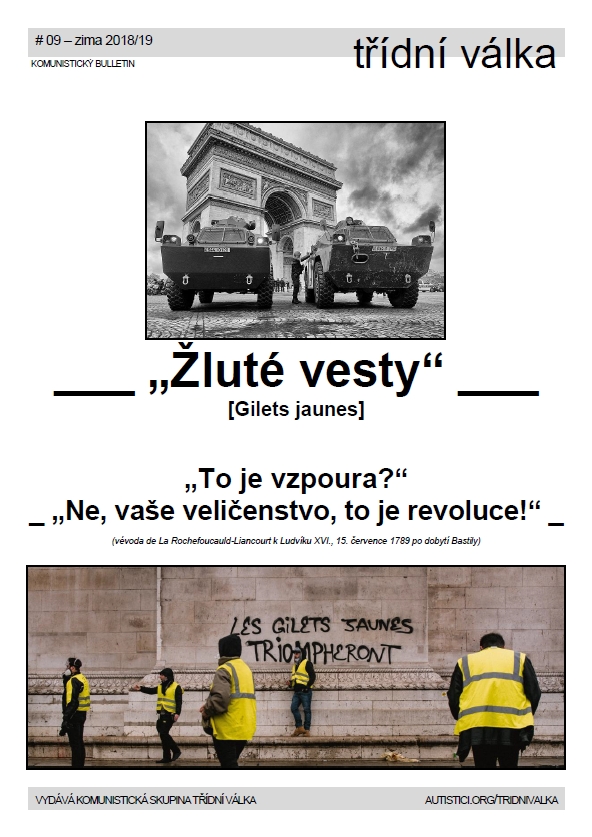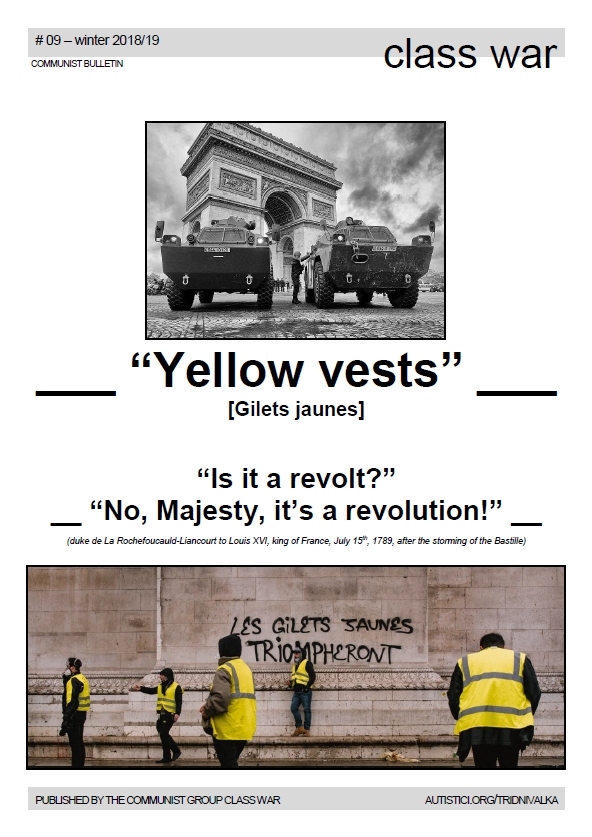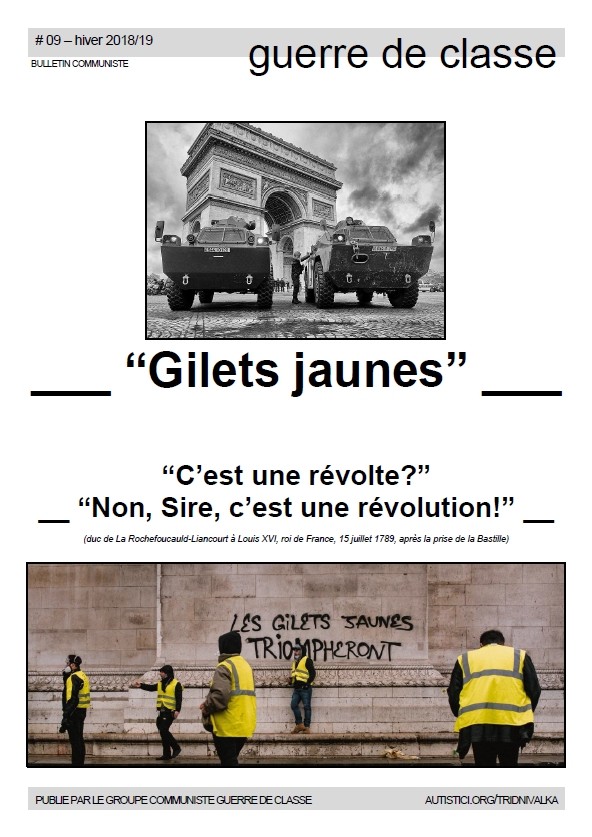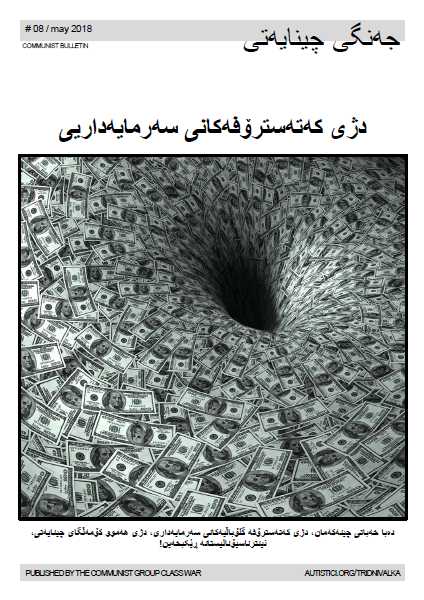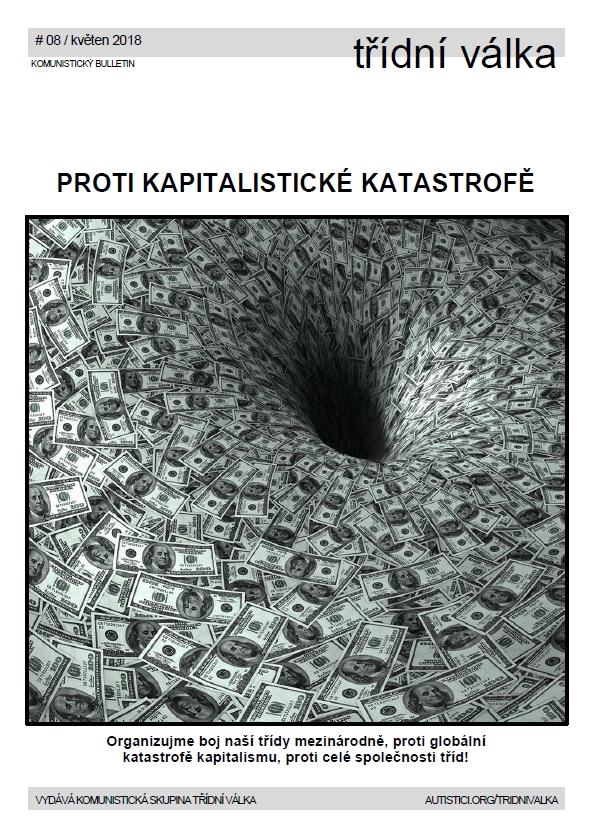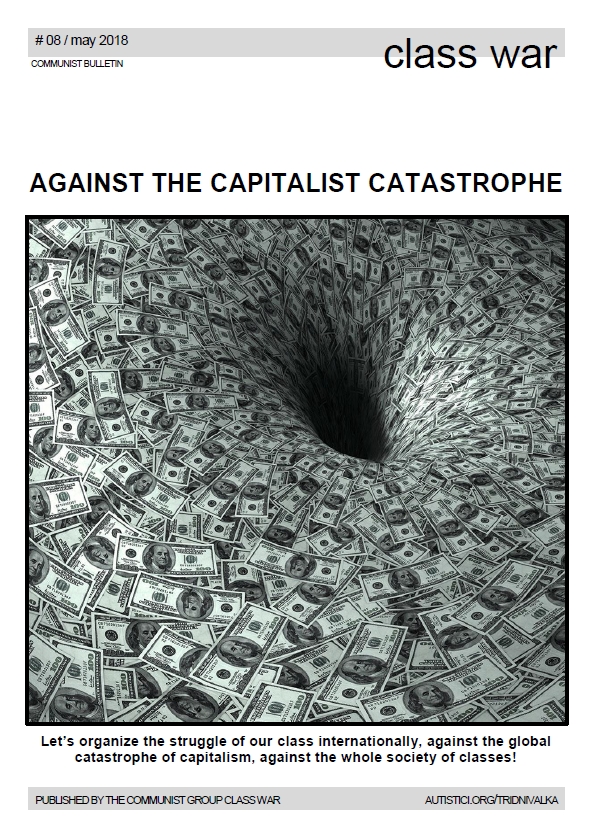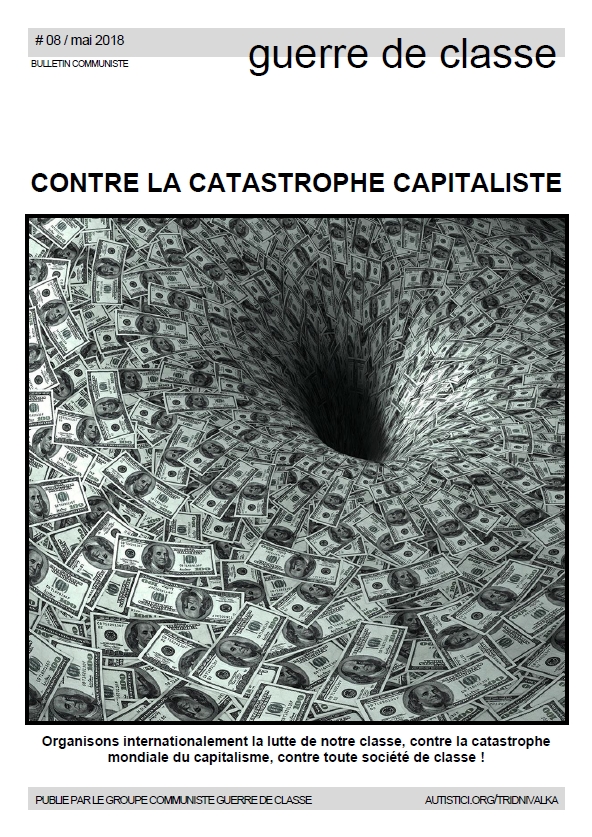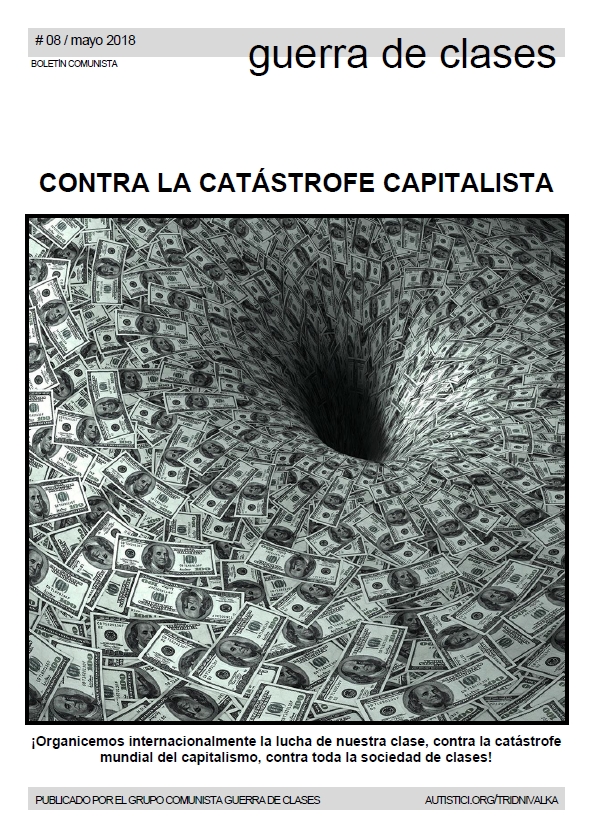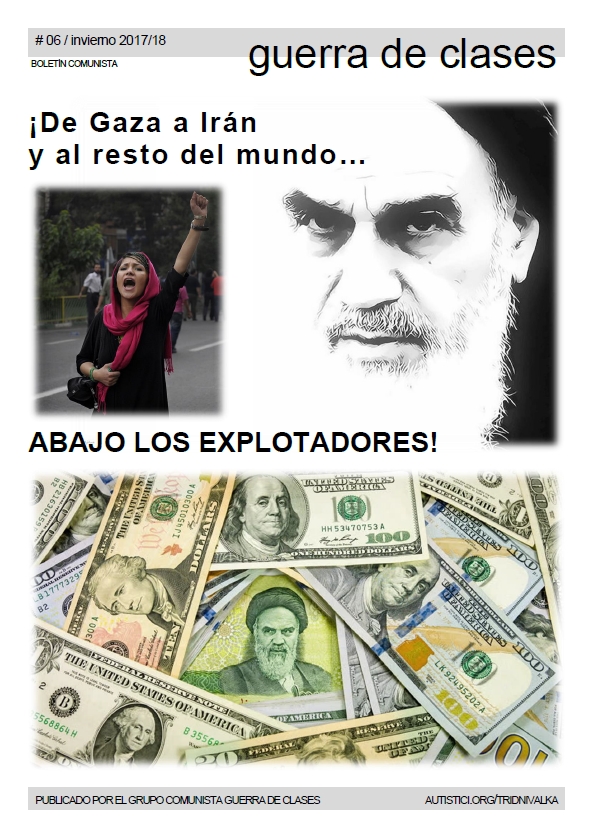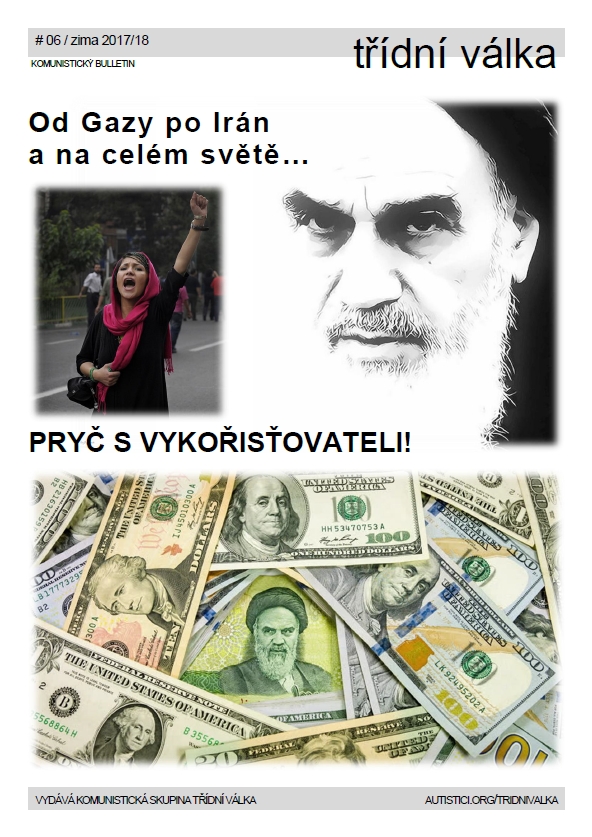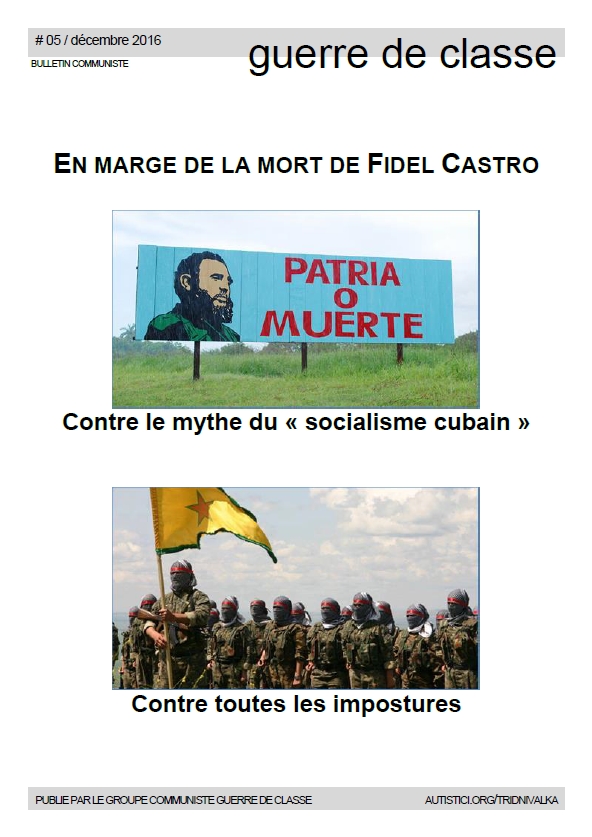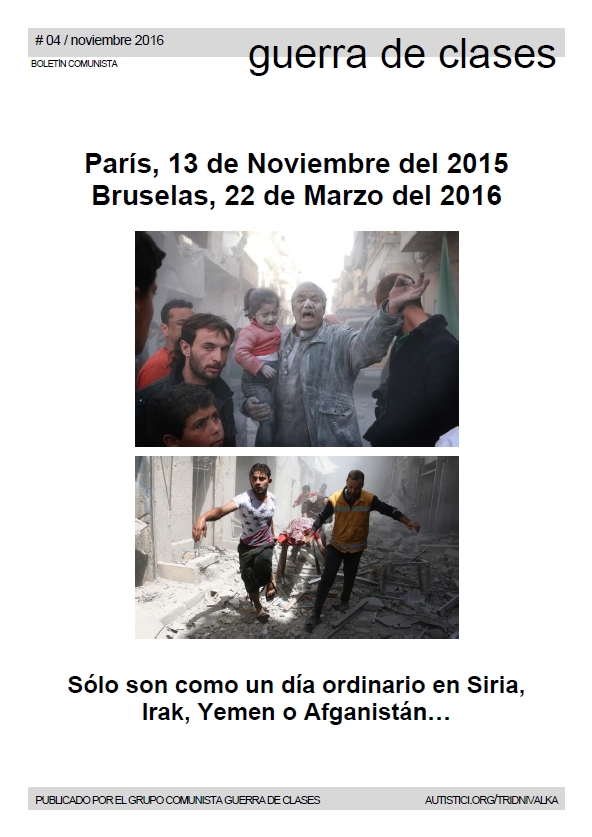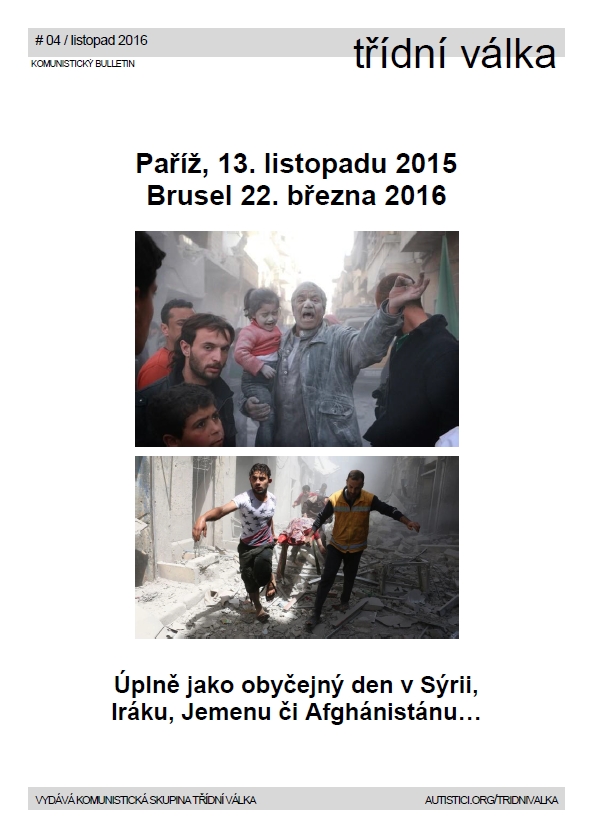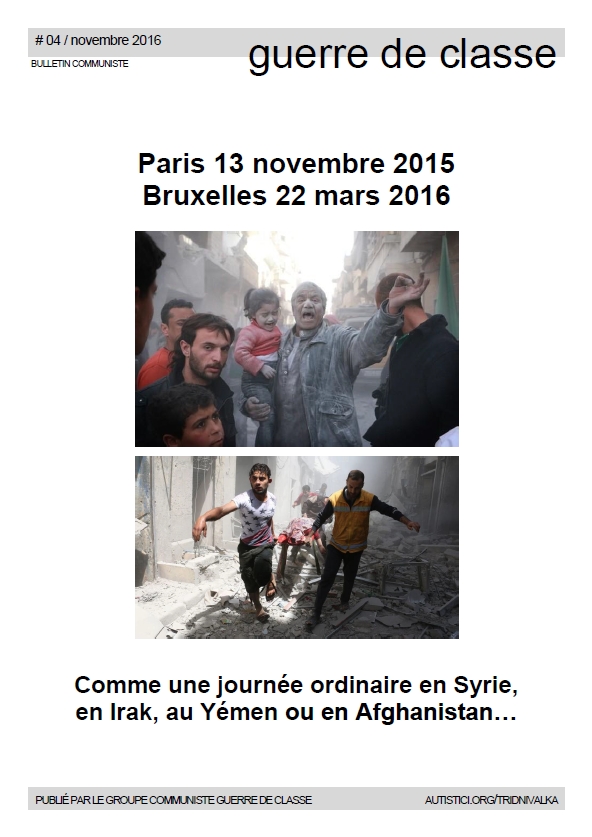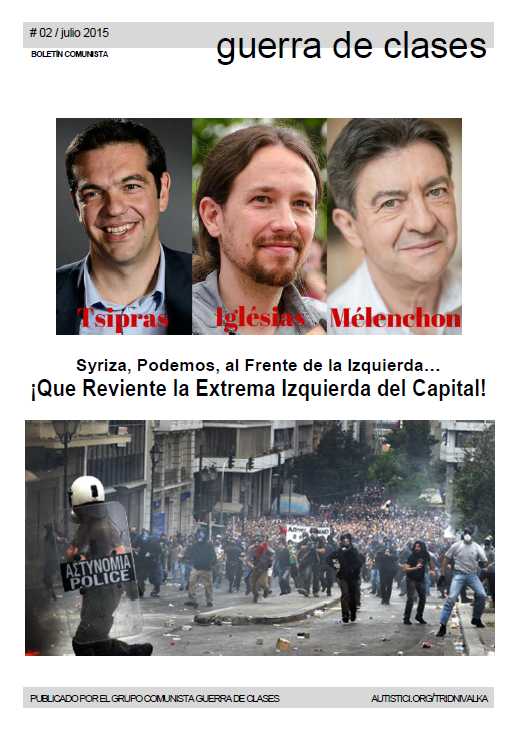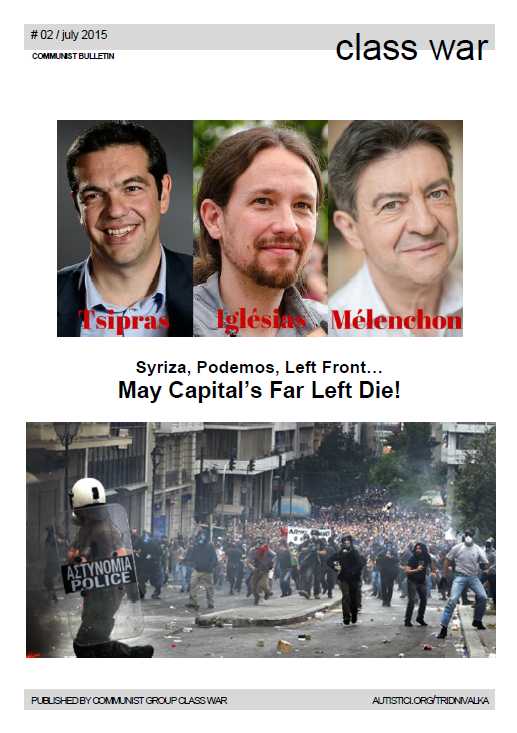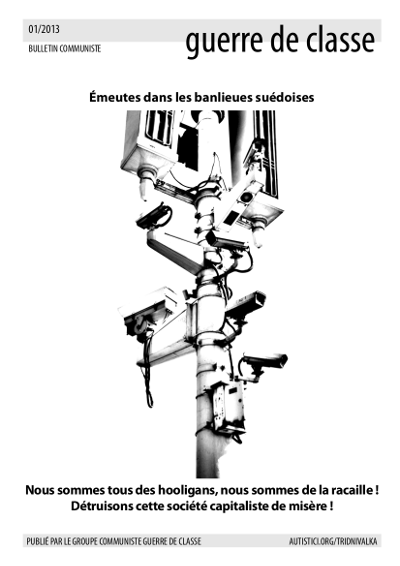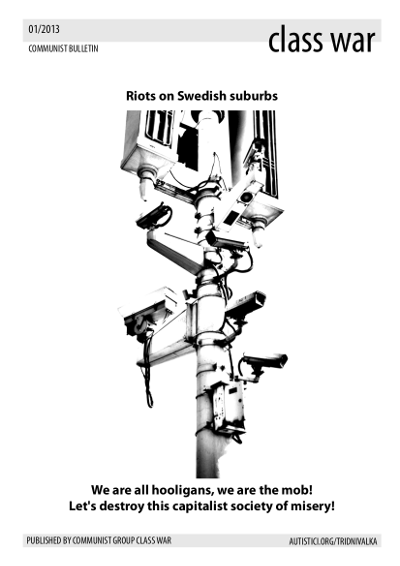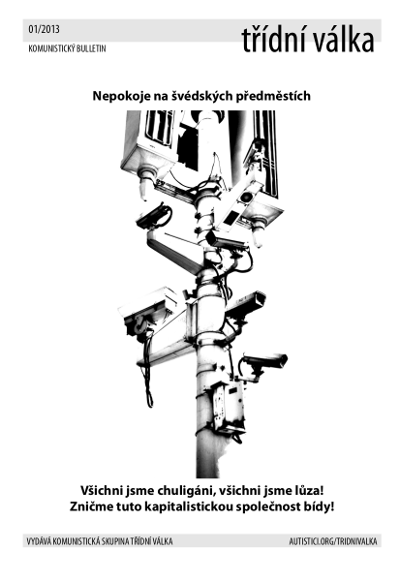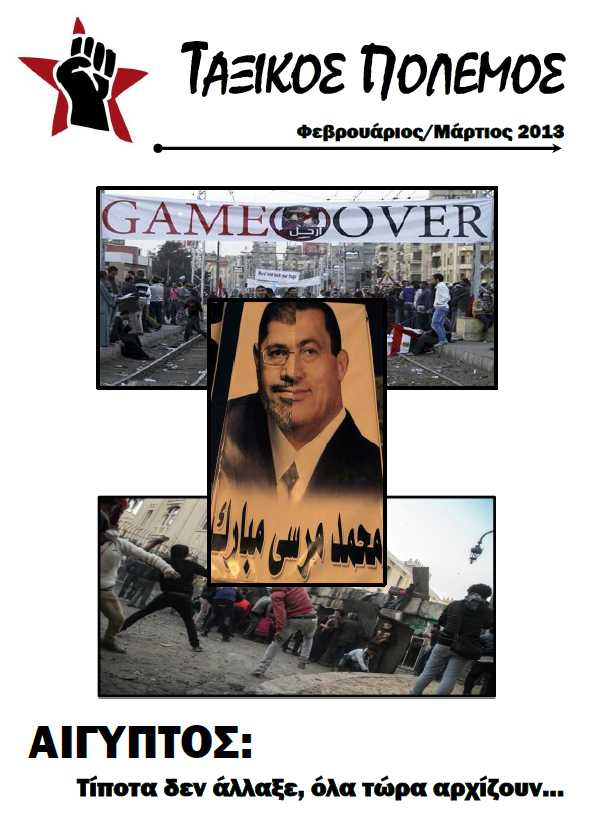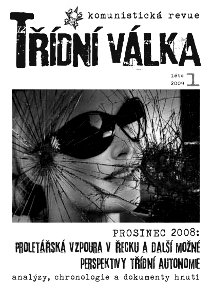ǀ Español ǀ Français ǀ English ǀ Deutsch ǀ

Source in Spanish: http://barbaria.net/2021/09/27/pandemia-y-control-social/
English translation: Los Amigos de la Guerra de Clases
Capitalism is made of impossible disjunctions. It splits what was in other societies understood as an organic whole and establishes an antagonism between two poles, forcing us to choose one and renounce the other to a greater or lesser extent. That is what the pandemic has done with health and economy. Thus, the proletariat has found itself faced with an aberrant choice: to die of covid or to starve to death. On the individual level, since under capitalism it is more likely to starve to death if you have no income than to die of covid, in reality the choice is a false one. It is nothing more than blackmail. On a social level it is more complex, and it explains the behavior of States since the pandemic began.
But behind this dilemma between health and economy, there is another one that is at the heart of the debates of social criticism from the beginning: freedom or health, mimicking the old dichotomy between freedom and security, itself an expression of the fundamental opposition in capitalism between the individual and the State. Thus, in the radical media, the concern for the State that seems to emerge strengthened from the pandemic at the expense of our individual freedoms is exerting a strong pressure. The discourses are varied. The existence of the virus is admitted or not, it is given a greater or lesser gravity if it is admitted, more or lesser weight is given to digital surveillance or to the media. But in any case, all these discourses share a common basis: covid is a smokescreen that prevents us from seeing the real problem, the increase in social control. The State puts on a mask and takes this opportunity to fuel the fear in the population in order to feed a voluntary servitude. “Shock doctrine”, as they used to say in another era. What is remarkable about the pandemic is not the health issue, the death toll, the sacrifice of health and life to the capital’s cannibalism, but the development of the mechanisms of control and repression through big data, the digitalization of everyday life, the reinforcement of the society of the spectacle, the increase of medical power, the rise of biopower. This process may simply lead us to a stronger, more totalitarian capitalism, or it could even be the transition to a new class society characterized not by the production of value, but by the absolute affirmation of an Orwellian State through technological domination and specialized knowledge.
From capitalism to biocracy?
Anti-developmentalism is perhaps the current that has the best expressed this last aspect. From its perspective, the pandemic has been exploited – if not provoked – by the State to increase medical and technological power over the population and, in this sense, it would be a confirmation of its thesis that we are moving or have already moved towards a type of society where the fundamental issue is not the exploitation of one social class by another, but the domination of a caste of technocrats organized around the State over the whole population. Updating the terms a little in the light of events, we can say that this State is a health dictatorship led by biocrats – the technocrats of medical power – who, through the medicalization of life and digital surveillance, have achieved a great advance in the domination of a population that has been numbed by the fear of falling ill and dying.
Terms are important; they shape our thinking and the categories we use. There is a radical difference between exploitation and domination, because the former has a material basis rooted in the way societies produce and reproduce life. Domination, instead, only tells us about a power relation without explaining where it comes from. And this is not trivial, because what has no definite cause has no possible solution either. Therein lies the reactionary force of postmodernity, which represents to us a world organized by a network of power devices without a precise cause or purpose, a multiplicity of oppressions from which it is not possible to break free. Revolution, not even resistance, is no longer conceivable from this perspective.
Thus, we will understand why the difference between the State dominating us and the State managing our exploitation is important. The State is not an autonomous institution, with its own purpose and functioning, separate from the social relations that organize the production and reproduction of life. On the contrary, it is an organ of these social relations when they are fractured by class antagonism, and as such it ensures that the society is held together in separation. In the case of capitalist social relations, where the production of value has an impersonal and automatic logic, the State fulfils the function of safeguarding the interests of capital, if necessary against the individual capitalists themselves.
The anti-development discourse goes one step further. It takes these social relations, which produce a particular type of technology and knowledge, and inverts the pyramid. Technology and specialized knowledge produce a certain type of social relations and the State is a mere instrument to impose them. Technology is fetishized. Technology, knowledge, and more currently medical knowledge, become an autonomous power capable to generate alienated social relations. There are many problems with this type of approach, but for our discussion we will only point out one: social relations can be modified, a social organization can be positively fought to establish another one, but knowledge and technology cannot be fought against. Anyway let’s walk away from that because as long as capitalism continues to subsist, technology and knowledge will continue to develop spurred on by competition between companies. It is therefore a dead-end struggle, because it does not attack the fundamental causes but it rather sidesteps them. In doing so, revolution ceases to be a material possibility and emancipation, if anything, becomes an enlightening fact. Only the most conscious, those who have received the word, can try to escape.
In reality, they will neither be able to do so. There is no way out of technocracy, but there is a way out of capitalism.
On biopower
In capitalism, the State is the manager of social relations of exploitation that are otherwise affected by a deep historical crisis. In order to understand the behavior of the State during the pandemic, we need to explain the contradiction it is facing.
Although there have been other pandemics in history, this is the first time that an unknown virus has spread in a society with such a large population and so globalized, so interdependent, so in permanent interaction all over the planet. To give us an idea, during the Spanish flu there were an estimated 1,800 million people in the world and the main means of transport were steamships. Today there are almost 7.8 billion and the number of airplane trips multiplied in the course of a few years: the power of spreading of new viruses – with their new strains – grows at the same time as capitalism is developing. We can thus understand that in such a globally interconnected society and with such a vulnerable population a virus with such a capacity for contagion is a real danger, not only because of the greater or lesser lethality of the virus itself, but also because of the threat of collapse of the health systems and mortuaries as well, and with the collateral deaths that this implies. It is not strange then that, if deaths from covid are officially at 4 million worldwide, in India alone there have been calculated between 3.4 and 4.9 million excess mortality from June 2020 to June 2021.
Thus, the State finds itself in an uncomfortable situation. It is as necessary to produce and circulate commodities as it is necessary to have living workers to do so. Far from being in a process of transition towards a new totalitarian society, the States are doing what they have always done under capitalism, but with the increasing difficulties imposed on them by the development of this mode of production: they must continue to be the guarantors of the maintenance of the labor force for its exploitation, in a context where the population is growing exponentially, where the interconnection of transport on a global level is increasingly exacerbated, where the permanent crisis of capital pushes towards an increase in social misery and a growing devastation of nature, and where these factors in turn weaken our immune system and cause new pandemics to appear. The function of the State, which consists in holding together a society torn apart by class antagonisms and, in capitalism, by the war of all against all, provoked by competition between capitals, finds itself in ever greater difficulties, because it is faced with the dilemma of maintaining an economy that spreads disease or maintaining the workers who sustain the economy.
On the other hand, behind this observation lies the question that health is a social fact, much more than an individual one. Naturally, we are not only talking about contagious diseases, but also about the fact that our health is the result of the way how we organize ourselves socially: whether or not there is a separation between town and country, whether cities are small or monstrous, whether or not there is salaried work, the conditions of greater or lesser healthiness how this work is done, the type of housing we have, the type of agriculture we practice, the way how social activity affects our natural habitat and the multiple ways how this habitat does the same for us. Long before we get to the individual management of our own bodies, health is a social fact.
Moreover, the development of capitalism and the enormous force of socialization it has made globally imply that health becomes more and more a fact of species. Unlike other pandemics, our health is more and more globally interconnected; one could say that we have more and more a single body at a global level. But this in capitalism is a serious problem, because it tends to unify us internationally while at the same time it can only manage us through Nation-States. As with climate change, the covid pandemic is a demonstration of the impotence of capitalism to solve the historical problems it creates. And the mediocrity of governments in dealing with the pandemic is but one expression of this impotence.
Our health is a social fact, but in this system of aggregation of isolated individuals in permanent competition, freedom is thought in isolation and the social is identified with the State. A spontaneous organization based on free will and mutual aid is not possible in a society ruled by commodity: as long as capitalist social relations exist, the State will continue to exist to regulate and prevail against the selfish interests of individuals. Of course, what oppose individual selfishness are not the needs of human beings as a collectivity, but the needs of valorization of the value, the needs to accumulate capital. The management of health is a mere consequence.
The fact that we are only a labor force for the State and capital is obvious. This is why it is not our lives that matter, and even less our health, but that we maintain minimum levels of both – in statistical terms – in order to continue feeding the automatic machine of capital. It goes without saying that our bodies are subject to administration control in order to guarantee this purpose. This is neither new nor extraordinary. So much so that women’s bodies have been long since the subject of control by class societies, in order to guarantee the reproduction of labor force and the correct transmission of private property, and this had no effect on the ideas of the great geniuses of philosophy. The theory of biopower, which has been brought up lately to defend the idea of an increasingly totalitarian and powerful State, is nothing but a banal observation of this fact. In a pandemic with the characteristics as described, and seriously threatening the proper functioning of the machine of capital, the need for the State to control our bodies is exacerbated by an element that is true – health is a social fact – and another that is false: that it would be defending society and social needs. If we stick with this statement, however, there is neither an explanation nor a possible way out. The solution cannot lie in the health management of the State, which will always be the subordination of our health to the cannibalism of capital, or in the defense of the individual as a free atom, independent and alien to the social body.
Capitalism is weakening, and the State with it
Those who do not speak directly of the transition to a new class society affirm that capitalism is getting stronger, that day by day it is gaining in power of conviction and is crushing those who do not want to be convinced. In this regard, the bourgeoisie is more and more powerful. If it has not planned it, at least it has not missed the opportunity of the pandemic to increase technological surveillance and to keep the citizens more subdued through a strategy of fear.
But the term strategy seems excessive. It is certainly unusable as a global strategy where the ruling class follows a defined and agreed plan, since the management by each government has been an everyone for himself throughout the pandemic, first with masks, PPE [Personal Protective Equipment – EPI in Spanish, Translator’s Note] and artificial respiration devices, and then with vaccines. And at the national level, there is no definite plan or collusion either, because the most characteristic feature of this management has been the zigzagging, the recommendations that contradicted each other, the shots in the dark, the re-openings and the relaxation of measures that were known, for certain, to be merely temporary. Of course, it has little to do with those great national plans that the bourgeoisie drew up a few decades ago and which gave governmental management stability despite the change of political color. But it has little to do even with previous years. With this crisis, the uncertainty and disorientation of the ruling class is reaching a climax: economic growth data are evaluated and oscillate every month, monetary and inflation control policies are governed by a “let’s do it now and we’ll see”, the ERTE [Expediente de Regulación Temporal de Empleo – Temporary Labor Force Adjustment Plan, Translator’s Note] are negotiated and renegotiated to keep them a few more months, the measures to curb the electricity and gas bill are applied by quarters, hoping that – God willing – the next quarter will be better. In the EU, its own policy towards the vaccination campaign has been a succession of contradictions and back-and-forth.
And this is normal. The bourgeoisie is disoriented, because its own social relations are getting out of control. It needs to limit unemployment, but it cannot avoid the layoffs through the automation of the economy. It needs to limit climate change and the waste of energy and natural resources, but a mere slowdown in GDP growth means very hard economic crises. It needs commodities to flow, for the population to continue to consume them at a fast pace, for capital to continue to move freely around the planet, but its own debacle encourages the emergence of pandemics that make it necessary to hinder this movement, to close borders, to retreat.
If the State appears to be increasing in size, it is not because it is growing and getting stronger, but because it swells due to the sheer decay of its historical function. On the one hand, its weight in the economy is increasing because companies need it as an organ of artificial respiration, insofar as their profits tend to decrease with the advance of capitalism. Without its jobs, its consumption, its monetary injection policies or its public credit, the economy would not be able to resist. In this way, we are witnessing a process that tends to blur the founding separation of capitalism between economy and politics, between State and market, because at the same time that the State is an organ of artificial respiration for capital, the latter has an ever greater control over it. The capacity of the Fordist State to impose its political decisions, its economic planning, its monetary policies or even its tax system is now far behind. Because the exhaustion of value also leads to the exhaustion of the State as an organ of regulation of capitalist relations. The ease with which capital is delocalizing and escaping its territorial control, the sustained increase of public debt that puts it in the hands of the international financial markets, the growing importance of supranational structures, all this calls into question the traditional principle of any State: the sovereignty over its territory, the ability to make its political decisions matter. On the other hand, the concentration of capital in specific regions provokes a territorial disparity within its borders that provides the material basis for the outbreak of regional or nationalist movements of a centrifugal nature. And finally, the loss of the material bases of reformism, due to a decreasing production of surplus value, also means that the State itself has less and less resources for social integration through aid, public services, social welfare: it is not for nothing that religion and communitarian identitarianism are replacing it in these functions, without this allowing the unification of social fractures, but rather deepening them in a reactionary sense.
It is only within this chaos that the increase in digital surveillance and the modernization of repressive mechanisms can be understood. Yes, capitalism is resorting and will increasingly resort to repression, but this does not imply greater social control. On the contrary, if it needs to resort to the use of force it is because the consensus machinery begins to get stuck.
Technological development is both the tool and the condemnation of the ruling class. Because of technological development, today we have a capacity for surveillance unprecedented in history: drones, facial recognition, tracking through smartphones, massive analysis of the consumption of products and content on the internet, surveillance of social networks through artificial intelligence and big data. But also, on the basis of this same technological development, less and less human power is needed to be exploited, profits are decreasing, capital is concentrated in a casino economy that only generates bubbles always on the brink of bursting, the surplus population without social utility is increasing, more and more energy resources and raw materials are required and to obtain them the ecological crisis is deepening, the earth is becoming sterile due to the exploitation of agro-industry, the rupture of the phosphorus cycle and desertification as well as climatic phenomena are becoming more and more extreme, drinking water is becoming a growing problem, wars are multiplying, the imbalance of ecosystems threatens our own life on the planet.
And all this generates social outbursts, revolts that lay the foundations for future rebellions. Of course the State is arming itself, but only because it can rely less and less on social consensus. Only from a perspective of domination, where power imposes itself without explanation or possible resolution, we can suppose that humanity can stand idly by in the face of this process. Those who do not allow themselves to be trapped by such a perspective will see that the current movements are confused, full of limitations, but that they are responding to a system that condemns our species and that they learn, they draw lessons from past defeats, with a subterranean memory that makes each world wave superior to the previous one: waves before which the State finds itself increasingly armed and increasingly fragile.
It is common in capitalism that we are put against the wall and we have to take sides with a lesser evil. Health or the economy. Freedom or security. Human rights or social needs. The individual or the State. We are writing after a year and a half of a pandemic crossed by these dichotomies. And the debate they have provoked among the ranks of social critics is not insignificant, but we will not be able to resolve it within them. There is something false and something true in the polarization we are witnessing: true, because health and economy, freedom and security in capitalism are living a real and irreconcilable antagonism. Whoever chooses one has to renounce to a greater or lesser extent the other. That’s why the attempts of the left to elaborate proposals to resolve this antagonism are not only banal but also full of self-deception – to justify its own social function – and cynicism.
But there is also something false about this polarization, because we will never find the answer if we look for it in this confrontation, and because arguing from that point of view brings us to choose one part of capital over another. Those who choose health and security find themselves defending the State as a neutral institution, good if well managed, which is the only one capable of looking after the common interests and safeguarding social needs against the selfish drive of isolated individuals. Those who are leaning towards freedom and economy end up defending the free will of the individual, whatever the cost, and see as natural the aberration of a social system governed by commodity and wage labor.
The only possibility for those of us who aspire to an emancipated society is to break with this approach to the debate, if we do not want to be trapped in it. Between dying of covid and dying of hunger, we choose to fight against a system that imposes this dilemma on us. Between defending the State as the sole guarantor of social needs and defending the freedom of the individual, oblivious to his interdependence with the others, we choose to fight against capital. Neither wage labor nor a system that makes us sick. Neither the State nor the individual: both categories are born with class societies; they grow in capitalism and will die with it, as being the last class society in history.
